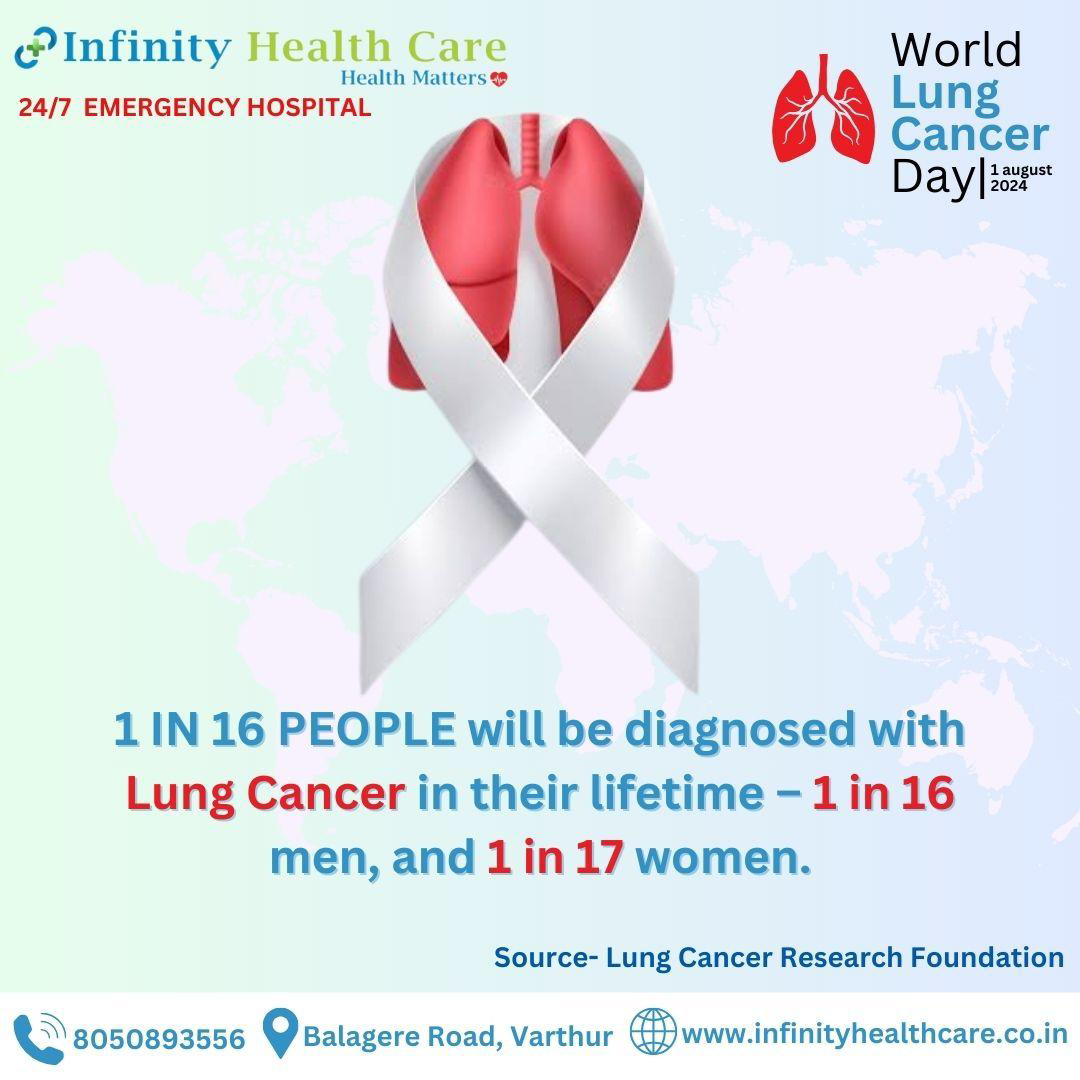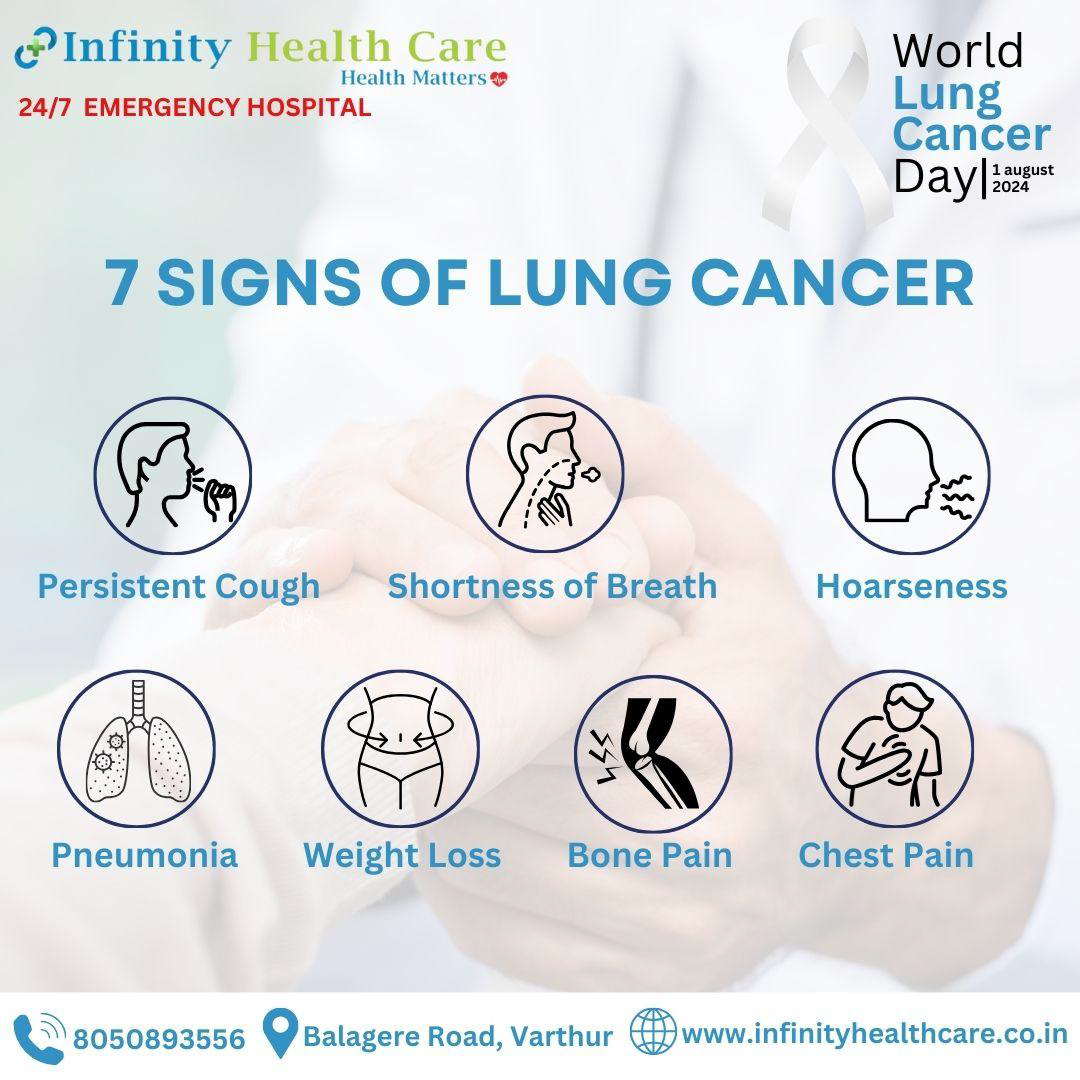Infinity Health Care Multispeciality Hospital
“A day to unite and fight against
Lung Cancer with strength and resolve."
Picture a world where lung cancer is no longer a scary and life-threatening disease but something that can be stopped in its tracks through prevention, treatment, and care. A world where every individual affected by this disease receives the care and support they deserve. This vision is what drives World Lung Cancer Day, a day dedicated to raising awareness and Igniting hope in the fight against lung cancer. According to WHO, lung cancer caused 127k deaths in 2023, becoming the most common cause of cancer-caused deaths. This day aims to raise awareness regarding lung cancer, its causes, risk factors, and symptoms and motivate people to get themselves screened.
On 1st of August every year, World Lung Cancer Day is observed. Lung cancer is the most commonly occurring cancers worldwide. The day was established to raise awareness about lung cancer prevention and treatment. It serves as an opportunity to unite individuals, organizations, and communities in the fight against lung cancer, which remains one of the most common and deadliest forms of cancer worldwide. The day also aims to provide support and information to those affected by the disease and promote the importance of early detection and research efforts. Various awareness campaigns, educational events, and fundraising activities will be conducted to raise lung cancer awareness.

Lung cancer occurs in the lungs when the cells of the lungs start proliferating abnormally. It is the leading cause of cancer death in both men and women. There are two types of lung cancer: small and non-small cell.
Small cell lung cancer is a rapidly spreading form of cancer that tends to metastasize early in its development. Treatment for this type usually involves a combination of chemotherapy and radiation therapy.
Non-small cell lung cancer is a slower-growing variant that can be managed through various approaches, such as radiation therapy, surgery, chemotherapy, and targeted therapy.
Symptoms of lung cancer among people who never smoked are similar to those who have smoked. They may experience general feelings of unwellness, constant fatigue, frequent coughing, coughing up blood, chest pain, wheezing, and shortness of breath. It's vital to be aware of these signs and consult a physician if any symptoms arise, as early detection can lead to better treatment outcomes

Risk factors that increase the chances of development of lung cancer in a patient are
Join campaigns to promote the awareness of lung cancer among the public. Ensure you follow all the preventive measures before educating others about it. Spread awareness about the harmful effects of smoking, the benefits of early screening, and treatment options available for lung cancer.
Infinity Health Care's Pulmonary Department is here to provide better relief for any lung issues. Visit us today at Balagere Road, Varthur.
To reach us please contact on Phone No.8050893556, Balagere Road,Varthur, Email – contactinfinityhealthcare@gmail.com and Website - www.infinityhealthcare.co.in
Written By
Infinity Health Care